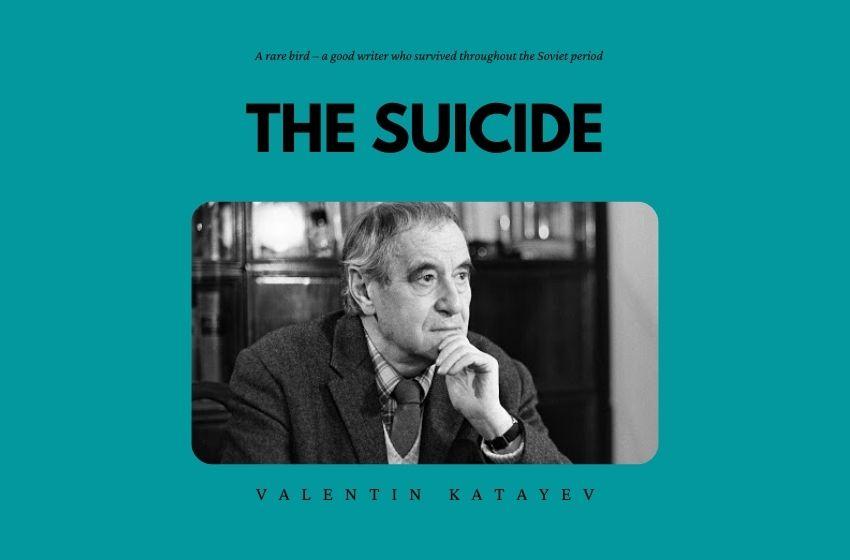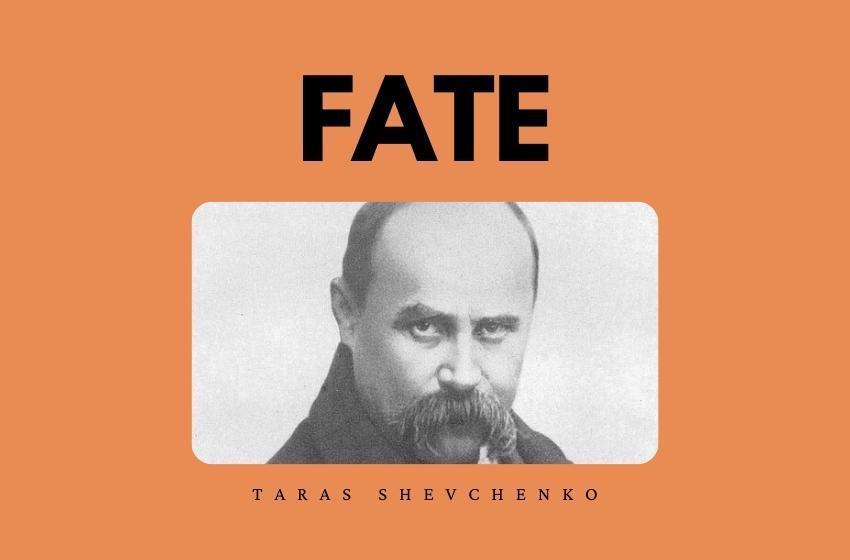Kataev was born in Odessa (then Russian Empire, now Ukraine) into the family of Pyotr Vasilievich Kataev, a Court councillor and a teacher at the Odessa Female seminary, and Eugenia Ivanovna Bachei who belonged to a noble family of the Poltava Governorate. Kataev himself developed a style he called "lyrical diary," mixing autobiography and fiction.
On the part of the Citizen, it was a swinish thing to do in every respect.
Nevertheless, he made up his mind to it, especially since suicide was not punishable under the criminal code.
In short, a certain Citizen, disillusioned with Soviet realities, decided to turn his face toward the grave.
It’s sad, but it is a fact.
He hurriedly collected his severance pay and the wages due him for the vacation he had not taken. Then he penned a feverish note to the Local Committee, bought a large and beautiful nail, a piece of toilet soap, and three yards of rope at the government store, and went home. There he pushed a chair over to the wall and climbed up.
Cr-rash!
“The devil! What a seat! It can’t even support the weight of a young, intellectual suicide. And they keep talking of their fight for quality! They call themselves the Wood Manufacturing Trust! Phooey!â€
But the Citizen was not a man to bow before the blows of fate, which is nothing but the theory of probabilities, anyway, nothing more!
He managed somehow to climb up on the windowsill, held the nail against the wall, and hit it with a paperweight.
Cr-rash!
“Some nail! In pieces! Their fight for quality, indeed! A decent man has nothing to hang himself on, may the Lord forgive me! I’ll have to tie the rope directly to the chandelier. At least that’s still a product of the old regime! It will not let me down!â€
The Citizen tied the rope to the chandelier, tied an elegant noose, and began to soap it.
“Some soap, I’ll tell you! First, it does not lather; second, it smells of goat, if you’ll pardon the expression, instead of lilies of the valley. It even makes you sick to hang yourself with it.â€
Suppressing his disgust, the Citizen put his head into the noose and jumped off into the unknown.
Cr-r-ra-sh!
“A million curses on it! Broke, the beastly thing! It dares to call itself a rope! In the most interesting spot, too. Take a look for yourself…. Quality! I’ll say!â€
“To hell with it! Let me try something simpler. Ah! A kitchen knife. ‘Will I fall,’ as the song says, ‘pierced by the arrow, or is it going to fly past?’â€
Cr-r-r-rash!
The arrow flew past indeed: the handle in one direction, the blade in another. The Citizen burst into wild laughter.
“You may be sure! Ha-ha-ha! Quality! Well, how can you keep from killing yourself after all that?â€
“To die is to die! To hell with the knife, that relic of rotten medieval romanticism! Experienced suicides say that matches can be very, very useful for suicide. You grind up fifty matchheads into a glass, drink them down—and Eureka! An excellent idea. How come I didn’t think of it before?â€
His spirits restored, the Citizen opened a fresh box of matches and merrily began to snap off their heads.
“One, two, three, ten, twenty…. Hm … there are only twenty-eight matches in the box, and there should be sixty.â€
The Citizen broke into muffled sobs.
“Comrades, dear friends! What is this? I can understand if they say quality. But where is it written that an honest Soviet citizen should suffer like this over quantity?
"To the devil with matches! I’ll bang my head with all my might against the wall, and that’s that. With our own heads, as the slogan goes, we’ll push our way toward our goal!â€
The Citizen closed his eyes, took a running start, and—
Cr-r-rash!
The solid wall of the brand-new cottage cracked wide open, and the Citizen flew out into the street.
“Well, well! Merci! Hurrah for quality which is quantity! Hurrah! Ha-ha-ha!â€
Nevertheless, he did not lose his mind and was not taken to a hospital. The Citizen looked at the jar and sighed with relief.
“There. At last! Exactly what I need. Acetic acid. Now, this will surely work. I beg to state that no one is to be held responsible for my death …â€
The Citizen greedily brought the jar to his fevered lips and gulped down its contents.
“Hm! A pleasant beverage! Like grape wine, only milder. Shall I try another?â€
The Citizen drained a second jar, grunted with pleasure, and waved his fingers before his face.
“A piece of sausage would be just the thing now. Or some caviar…. And I was trying to kill myself, like a fool. Life is so beautiful! There’s quality for you! Marya, my dear, run down and bring me two more jars of acetic acid—and don’t forget some sausage. I’ve worked up a devilish appetite.â€
“Wel-ll, and now, after our little snack, we can sit back and dream a bit about the joys of liv—But what is this? What’s happening in my stomach? Oh, and my eyes! It’s turning dark…. The sausage, it’s the sausage! My friends, I’ve fallen in the battle with quality! And life is so beau …â€
And with those final words, the Citizen lay down with his belly up and died.
Which, however, was exactly what he had been after to begin with.
1922-1925
Translated by Mirra Ginsburg





















